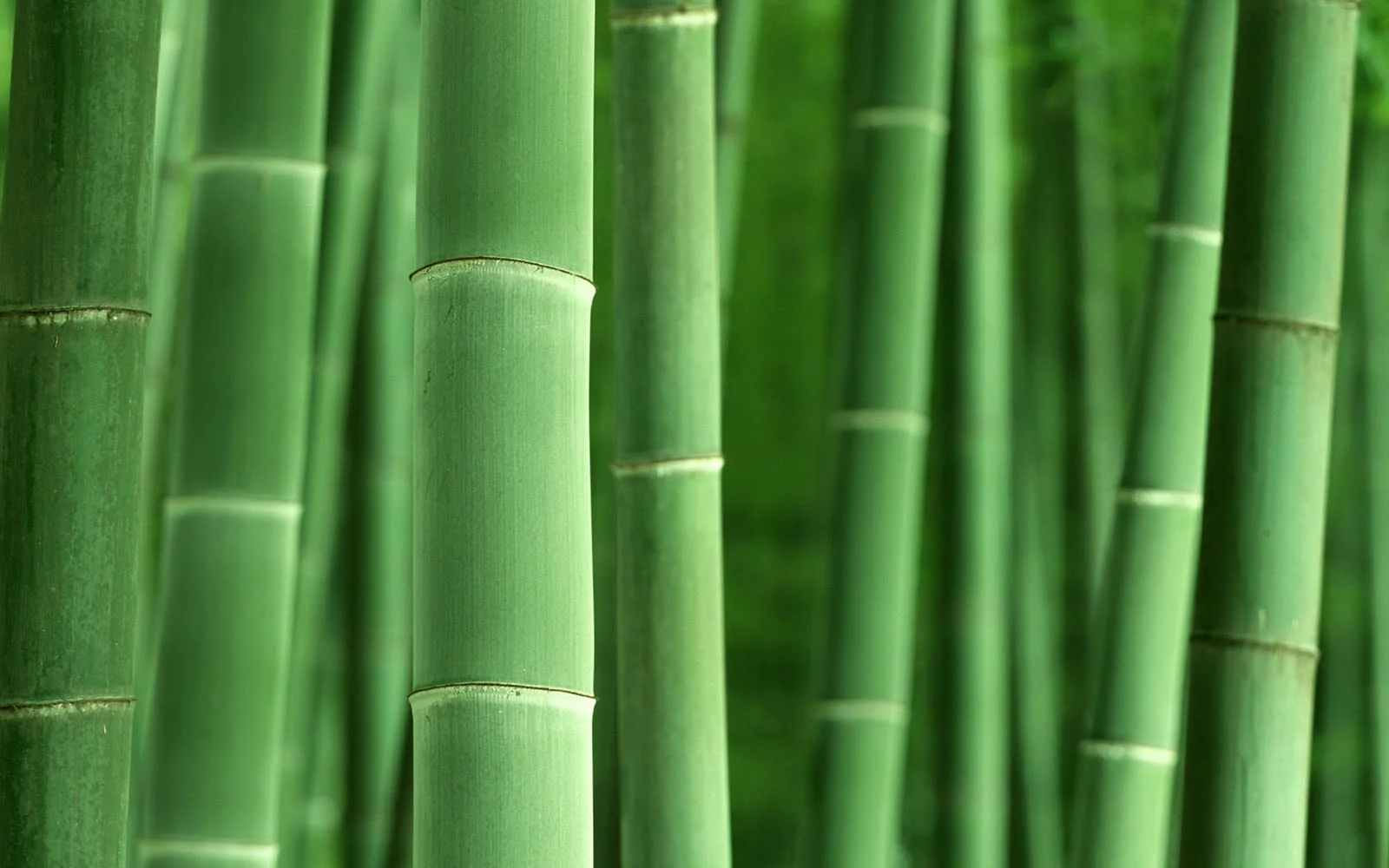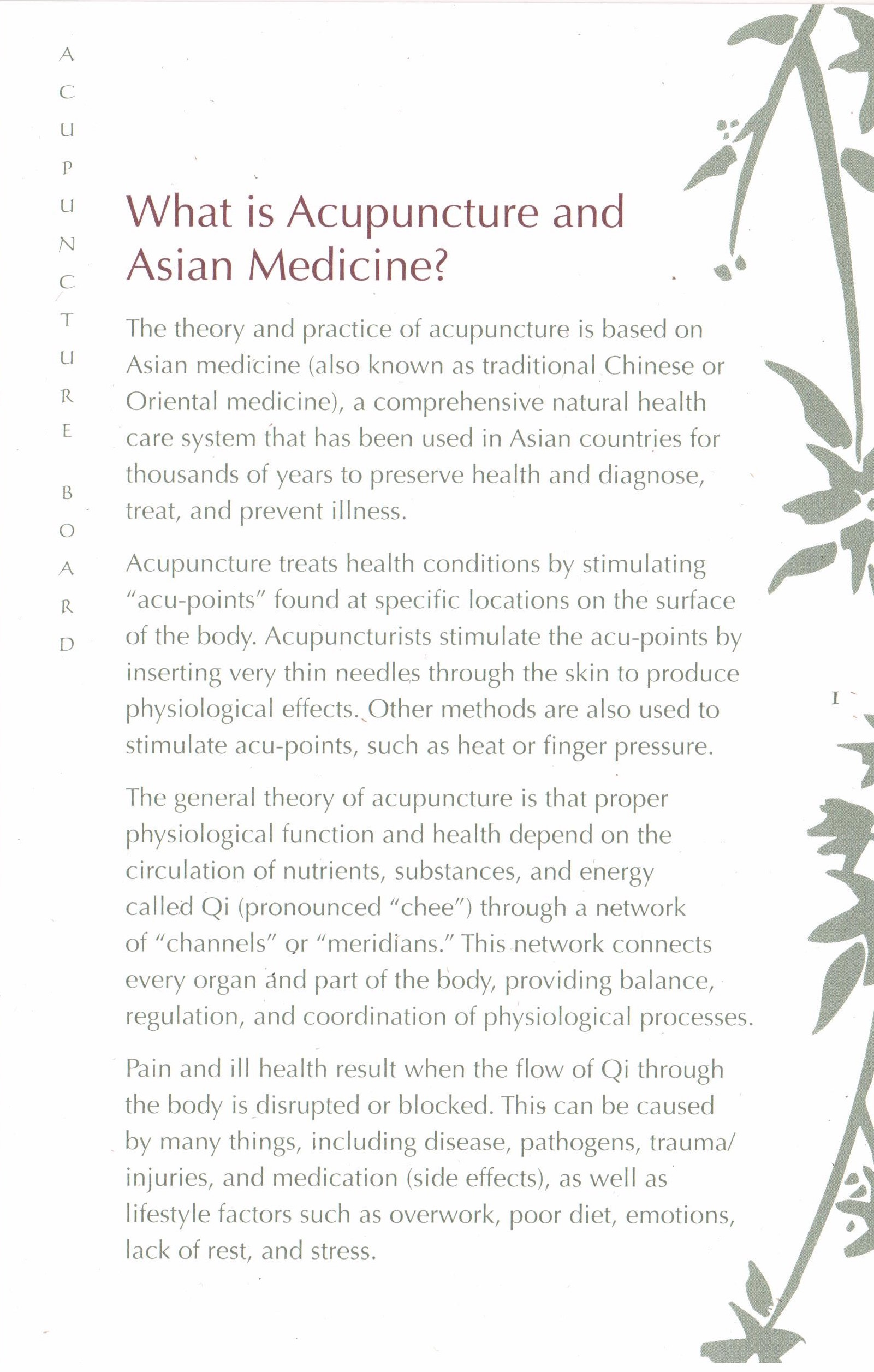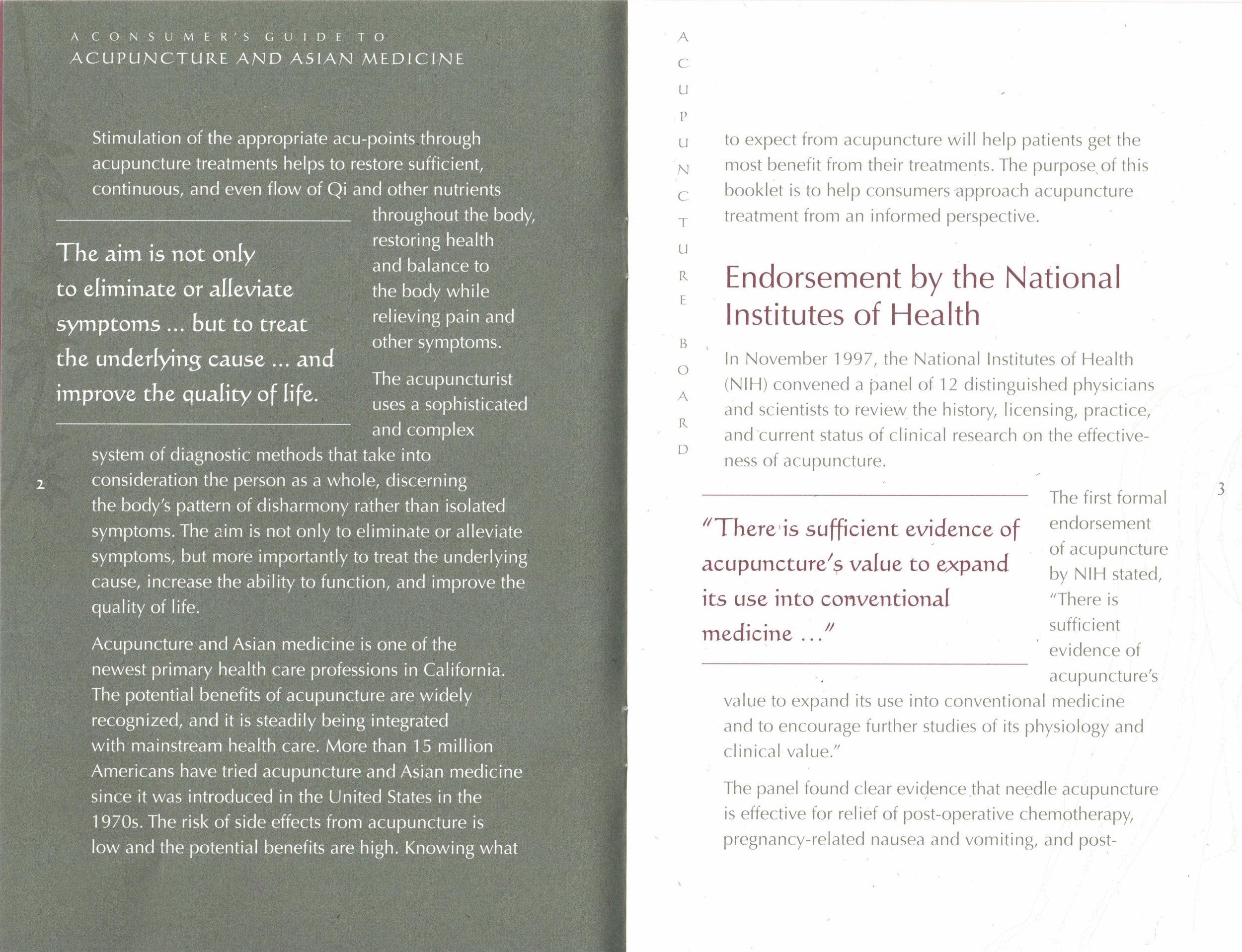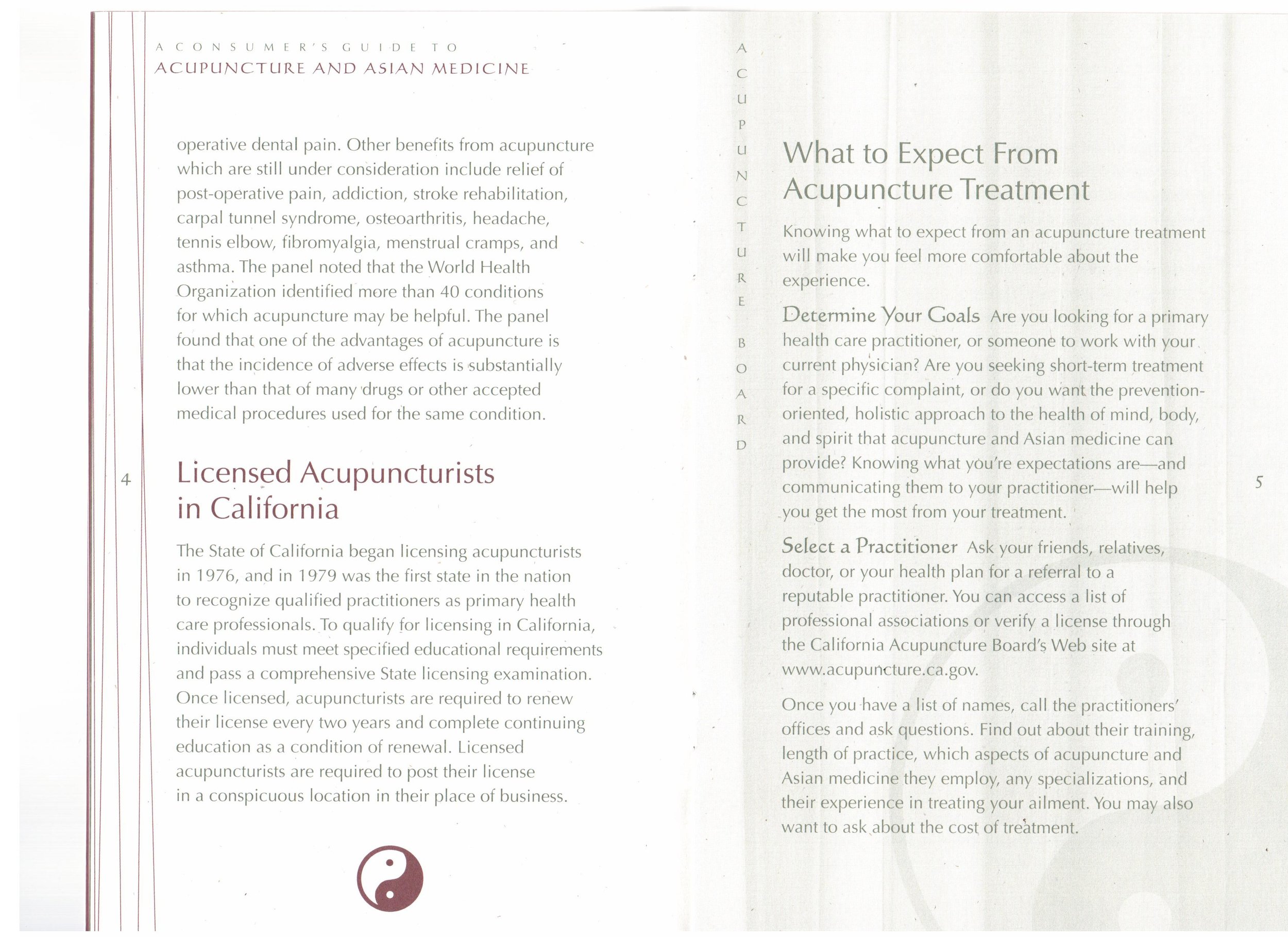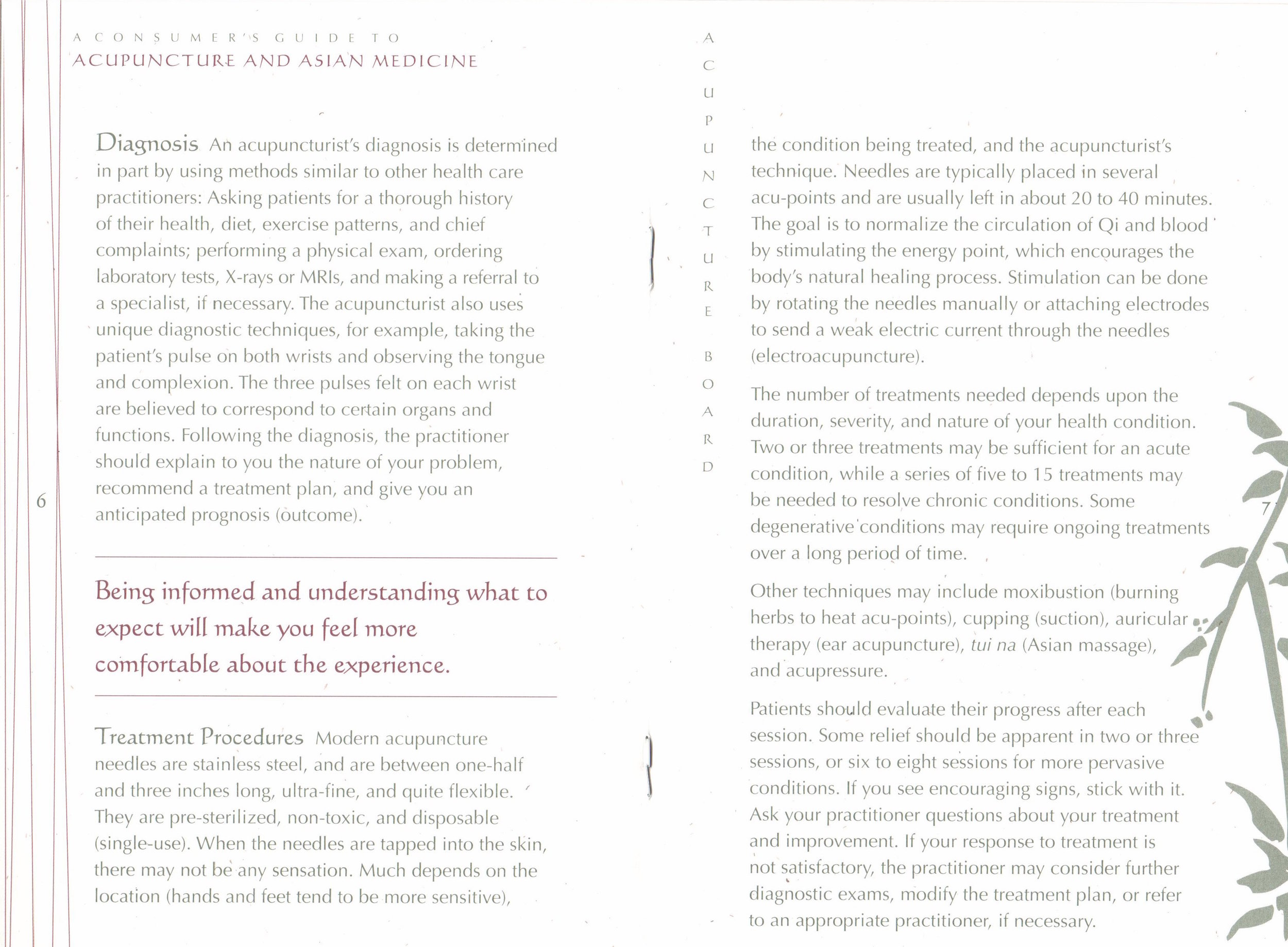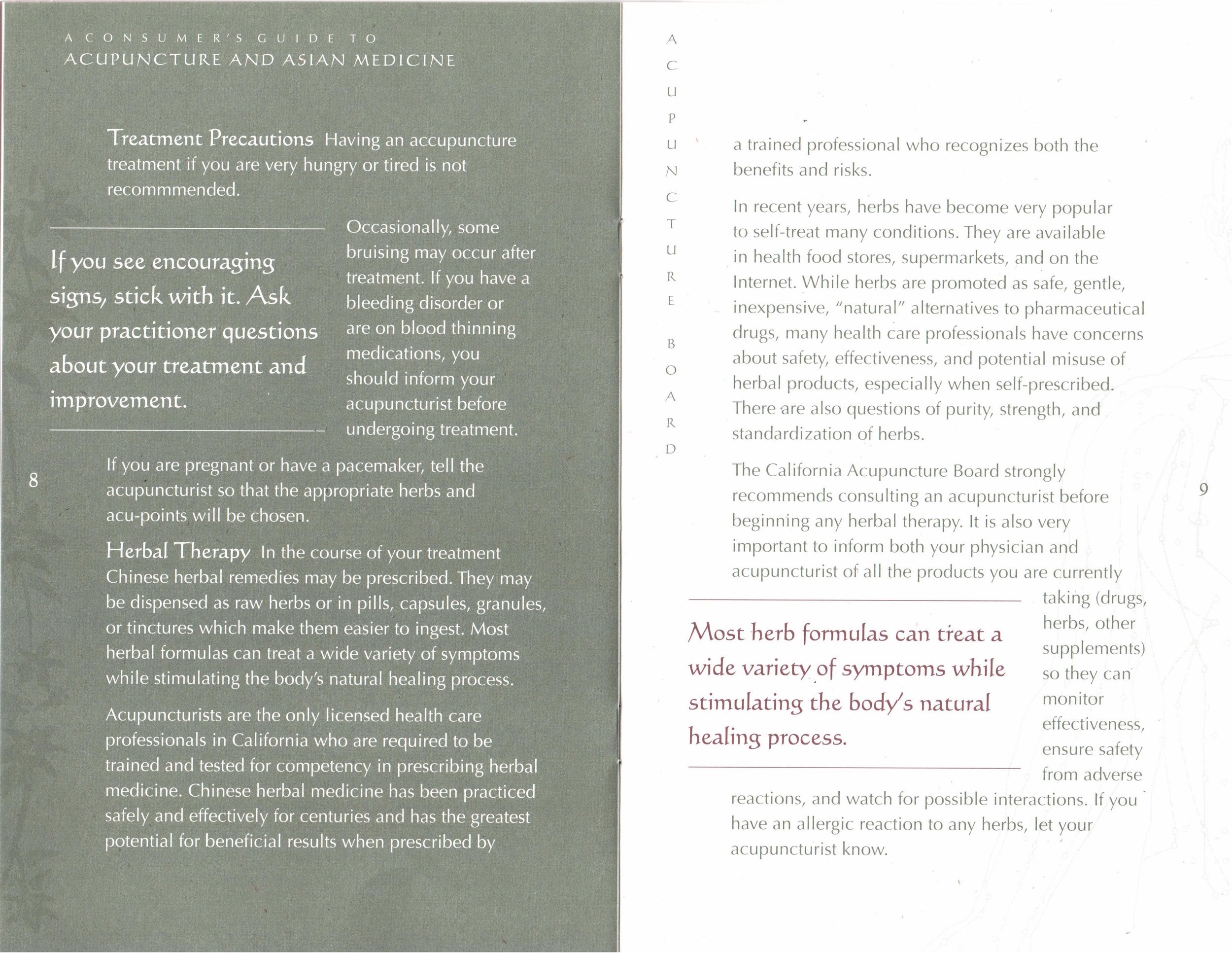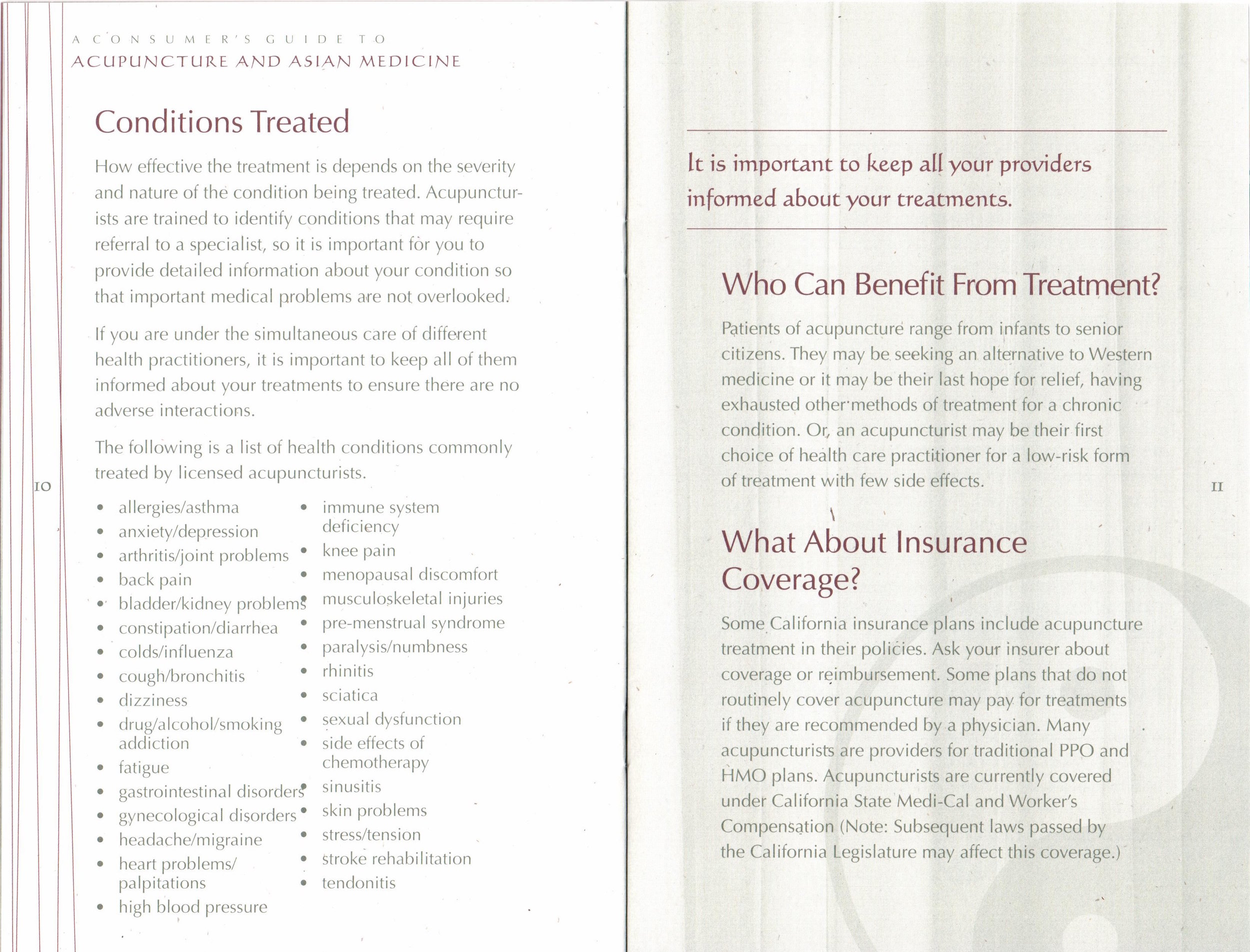WHAT can acupuncture treat?
The following is a list of health conditions commonly treated by Acupuncture & Herbal Medicine:
WHAT to expect from acupuncture treatment
Knowing what to expect from an acupuncture treatment will make you feel more comfortable about the experience.
Determine Your Goals: Are you looking for a primary health care practitioner, or someone to work with your current physician? Are you seeking short-term treatment for a specific complaint, or do you want the prevention-oriented, holistic approach to the health of mind, body, and spirit that acupuncture and herbal medicine can provide? Knowing what your expectations are --and communicating them to your practitioner-- will help you get the most from your treatment.
Diagnosis: An acupuncturist's diagnosis is determined in part by using methods similar to other healthcare practitioners: Asking patients for a thorough history of their health, diet, exercise patterns; and chief complaints; performing a physical exam, ordering laboratory tests, X-rays or MRIs, and making a referral to a specialist, if necessary. Following the diagnosis, the practitioner should explain to you the nature of your problem, recommend a treatment plan, and give you an anticipated prognosis (outcome).
Treatment Procedures: Modern acupuncture needles are stainless steel, and are between one-half and three inches long, ultra-fine and quite flexible. They are pre-sterilized, non-toxic, and disposable (single-use). When the needles are tapped into the skin, there may not be any sensation. Much depends on the location, the condition being treated, and the acupuncturist's technique. Needles are typically placed in several acu-points and are usually left in about 20 to 30 minutes. The goal is to normalize blood circulation by stimulating the energy point, which encourages the body's natural healing process. Stimulation can be done by rotating the needles manually or attaching electrodes to send a weak electric current through the needles (electroacupuncture).
The number of treatments needed depends on the duration, severity, and nature of your health condition. Four to six treatments may be sufficient for an acute condition, while a series of five to 15 treatments may be needed to resolve chronic conditions. Some degenerative conditions may require ongoing treatments over a long period of time.
Patients should evaluate their progress after each session. Some relief should be apparent in two or three sessions, or six to eight sessions for more pervasive conditions. If you see encouraging signs, stick with it. Ask your practitioner questions about your treatment and improvement. If your response to treatment is not satisfactory, the practitioner may consider further diagnostic exams, modify the treatment plan, or refer to an appropriate practitioner, if necessary.
Treatment Precautions: Having an acupuncture treatment if you are very hungry or tired is not recommended. Occasionally, some bruising may occur after treatment. If you have a bleeding disorder or are on blood thinning medications, you should inform your acupuncturist before undergoing treatment. If you are pregnant or have a pacemaker, tell the acupuncturist so that the appropriate herbs and acu-points will be chosen.
Herbal Medicine: In the course of your treatment Chinese herbal remedies may be prescribed. They may be dispensed as raw herbs or in pills, capsules, granules, or tinctures which make them easier to ingest. Most herbal formulas can treat a wide variety of symptoms while stimulating the body's natural healing process. It is also very important to inform both your physician and acupuncturist of all the products you are currently taking (drugs, herbs, other supplements) so that they can monitor effectiveness, ensure safety from adverse reactions, and watch for possible interactions. If you have an allergic reaction any herbs, let your acupuncturist know.
WHAT is traditional chinese medicine (TCM)?
Traditional Chinese Medicine (TCM), including acupuncture and herbal medicine, is the oldest continuously practiced medical system in the world. The World Health Organization (WHO) has endorsed acupuncture for over 42 conditions. Due to its effective, natural, affordable and non-invasive effects, Traditional Chinese Medicine has become a highly popular form of complementary holistic health care in the world, particularly within the United States.
Even before the use of acupuncture needles, herbal remedies were used to heal and balance the human body. Chinese herbs have been proven effective under the scrutiny of both empirical study and modern clinical trials.
Unlike most drugs, the herbs are combined into complex formulas that are specific to the patient's entire individual condition, not just one particular symptom. Most Western drugs can be used to control symptoms but do not alter the disease process. For example, antibiotics kill bacteria but do not improve a person's resistance to infection; diuretics drain excess fluid from the body but do not improve the kidney function. Chinese herbs not only address symptoms, they also nourish and balance the body in very specific ways, thereby improving organ function and building your constitution and immune system.
Traditionally, Chinese herbal formulas were taken as strong teas. Hyung S. Kim customizes individual formulas as well as use time-tested classics. The herbs he prescribe are safe, effective and of the highest quality.
how does acupuncture work?
Receiving acupuncture is a unique and powerful healing experience. The practice of acupuncture is integral to the ancient healing system of Traditional Chinese Medicine (TCM). TCM maintains that life force energy, known as "Qi", flows throughout the body in energy pathways known as "meridians". The proper flow of "Qi" is vital to good health. An imbalance of "qi" results in pain, dysfunction and ultimately, disease. Acupuncture specifically defines and corrects the "Qi" flow. This promotes the body's natural, healthy function.
In acupuncture, hair-thin needles are painlessly inserted into specific points along the "meridians" to restore energetic balance. Each of the hundreds of point possesses specific and unique functions.
Western medicine is able to stimulate or suppress electrical impulses within the body, but it is unable to regulate it in the profound way acupuncture can. Acupuncture works with the body, strengthening and balancing the energy. It improves circulation and allows the body to heal more quickly.
WHAT SHOULD I BRING TO MY FIRST APPOINTMENT?
Completed New Patient Intake Form
